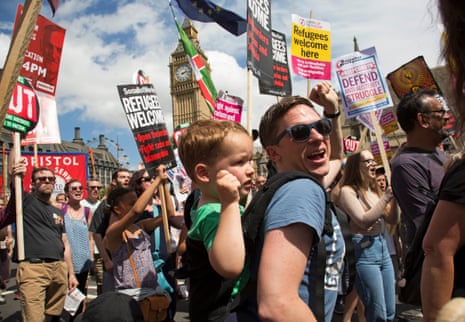Britain’s current young generation earned £8,000 less during their 20s than their predecessors and are at risk of being the first cadre of workers in modern times to see their lifetime earnings fall, according to new research.
A report by the Resolution Foundation highlighting the UK’s growing intergenerational divide showed that millennials, who are aged between 15 and 35, fared significantly worse than their parents in Generation X during their first years of employment.
The study found that the deep recession of 2008-9 and the subsequent slow recovery was only partly responsible for the pay penalty suffered by millennials, with earnings for young people being squeezed even before the start of the financial crisis.
The Resolution Foundation released the report on Monday to mark the launch of an Intergenerational Commission, which includes as members Frances O’Grady, general secretary of the TUC, and Carolyn Fairbairn, the director general of the CBI.
David Willetts, executive chair of the Resolution Foundation and chair of the Intergenerational Commission, said: “Fairness between the generations is something public policy has ignored for too long. But it is rising up the agenda with the prime minister, politicians of all parties, business leaders and others rightly identifying it as a growing challenge.”
Theresa May spoke last week of a growing gulf between a “more prosperous older generation and a struggling younger generation”, an analysis supported by the Resolution Foundation study.
Looking at the pay of a typical 25-year-old the report found that older millennials, who are now in their early to mid-30s and therefore turned 25 before the financial crisis hit, were the first workers to earn less than those born five years before them.
It added that younger millennials who entered work during or after the financial crisis will have had their pay squeezed even harder and could have their prospects permanently blighted as a result.
The report looked at how three separate generations had fared: the baby boomers born in the late 1940s to early 1960s, their children in Generation X and millennials.
It found that even in an optimistic scenario, in which the future pay of millennials improved rapidly after a slow start and followed the same path as the baby boomers, the lifetime earnings of current young people would be around £890,000. This would limit their generational pay progress to just 7% over generation X – a third of the size of the pay progress that generation X are set to enjoy over the baby boomers.
But in a more pessimistic scenario, in which the future pay of millennials instead followed the path of generation X, lifetime earnings would be cut to £825,000. This would make the millennials the first ever generation to face a generational pay penalty by earning less than their predecessors over the course of their working lives.
The Resolution Foundation said a pessimistic scenario could emerge if the short-term economic outlook worsened as a result of Brexit, the weak productivity outlook predicted by the Office for Budget Responsibility earlier this year persisted, and if pay growth continued to fall behind productivity gains, as it has done for much of the last two decades.
It warned that the impact of earning less coincided with a bleaker outlook for home ownership, with baby boomers 50% more likely to be paying a mortgage on their own property by the time they were 30. Meanwhile the shift towards renting and higher rents meant that at 30 millennials had paid £44,000 more on rent than baby boomers.
Torsten Bell, director of the Resolution Foundation, said: “Generational inequality risks becoming a new inequality for our times, and nowhere is that clearer than on pay. We’ve taken it for granted that each generation will do much better than the last – earning more and enjoying a higher standard of living. But that approach risks looking complacent given the realities of recent years and prospects for the future.”
“Far from earning more, millennials have earned £8,000 less during their 20s than the generation before them. The financial crisis has played a role in holding millennials back, but the problem goes deeper than that.”










Comments (…)
Sign in or create your Guardian account to join the discussion